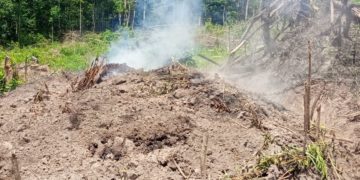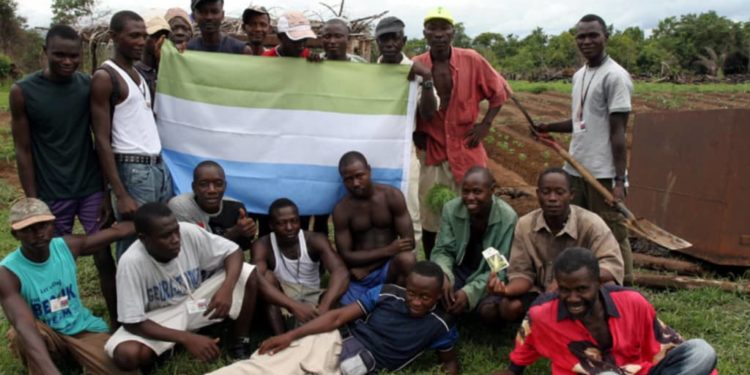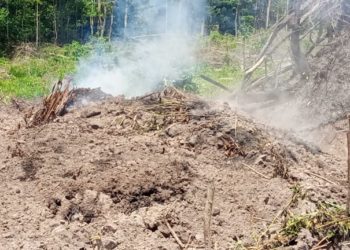By Brima Grant
Mohamed (not his real name) has been jobless for the last two years since graduating from college. A graduate in SocialWork, he was full of hope when he left Njala University. To take care of his needs, the 27-year-old has taken to selling drugs.
“I sell Tramadol and sometimes Kush so that I can eat everyday because I have no job,” he says.
Mohamed is one of the thousands of young men and women who leave college and university every year in Sierra Leone. Njala University alone, in 2024, graduated 3,568 people. The result of a 2023 survey by the Advocacy Network for Community Development (ANCD) in Sierra Leone showed that only 30% of graduates nationally were able to secure employment as of 2022. The survey was conducted across six university campuses in the country – FBC, IPAM, Njala, MMCET, Unimak and EBK University. And according to the International Organization for Migration (IOM), unemployment among young people in general in the country stands at 70%.
President Julius Maada Bio in the run up to the 2023 presidential election pledged to create 500,000 jobs, as contained in his Sierra Leone People’s Party (SLPP)’s manifesto, which was launched on May 23, 2023. Critics say his administration has failed to deliver on this pledge.
Joblessness is one of the factors blamed for the ongoing drug and substance abuse epidemic in Sierra Leone, which is mostly affecting young people.
Mohamed said he has written numerous applications, sent countless copies of his CV via email to prospective employers, but all has yielded no positive result. And according to him, there are limited options, which is why he turned to selling illegal drugs – Tramadol and sometimes Kush, which provides him with a small but vital income that sustains his livelihood.
Kush and Tramadol are two of the leading drugs at the center of the ongoing drug epidemic in the country, which has claimed hundreds and probably thousands of lives. There is no available official figure on fatalities in this epidemic. But Freetown Mayor Yvonne Aki-Sawyerr reported recently that the City Council collected 220 bodies from the streets between January and October 2025, many of which were suspected to be Kush victims. This is beside the unknown number of bodies collected in other cities across the nation that are also suspected victims of Kush and other harmful substances.
Nearly two years after the declaration of a National Emergency on Drugs and Substance Abuse by President Bio, the problem persists. The administration last month revived its campaign against the epidemic with a focus on cutting the supply chain.
But observers like Dominic Blakie, Chairman of Civil Society in Bo District, say while a crackdown on dealers is important, dealing with the fundamental issues like joblessness is key.
“When youths, especially young men are idle – no jobs – they will definitely think about taking substances like kush to keep them high,” Blakie said in a recent interview with the Bo-based Moonlight Radio.
Eddie Kamara, another Njala University graduate, expressed frustration over the government’s apparent neglect of college and university leavers, stressing that they are just roaming the streets every day, with no hope in sight. Eddie, who studied Bachelor of Science in Accounting, said the stress of unemployment has taken a huge toll on him, forcing him to be taking two tramadol tablets daily to cope with the emotional burden of joblessness.
“Since I left college, I have not secured a single job,” he says. “Sometimes it feels frustrating thinking about the resources I spent while acquiring the education. Because I don’t want to engage in any illegal act, I take two tramadol tablets a day, which makes me feel high. in this state, I don’t think too much.”
Article 64 in Chapter One of the Truth and Reconciliation Commission (TRC) reports that many youths who joined the Revolutionary United Front (RUF) rebels did so because they were “Sunk in the abyss of unemployment and despair,” and joining the RUF offered a viable alternative to joblessness, though some were forcibly abducted into the ranks of the armed group.
The report, in Articles 208 to 211 of Chapter three of the TRC, recommends very clearly how the National Youth Commission should strive by all means to provide jobs for youths and create opportunities for job creation both nationally and internationally.
To support this claim, article 310 states: “A National Youth Commission could spearhead public-private partnerships involving youth in different sectors including tourism, agriculture, fisheries, housing and mining. Industrial sites and service centres could be earmarked for initiatives aimed at providing employment opportunities for youth. The National Youth Commission could facilitate investment in such schemes and encourage worker – owner schemes which would give young workers a stake in the initiative. Over a period of time, youthful workers could become co-owners and investors in such companies. The Commission recommends that the Government of Sierra Leone work towards the fulfilment of these recommendations.’’
Ibrahim Kabba, coordinator of the National Youth Commission in the Southern region, says the Commission is working closely with the Ministry of Youth and other stakeholders to create platforms for job opportunities. He explained that these initiatives include skills training programs for both graduates and non-school youths, aimed at equipping them with marketable skills to secure employment. Kabba stated that these trainings will enable youths to be job creators instead of job seekers, and he disclosed that some of the training opportunities are followed with a provision of startup capital for self reliance.
According to Kabba, currently the Commission and its partners, with support from the World Bank, are providing startup business funds of USD300 to 8,000 to youths across the country under a project called Productive Social Safety Net and Youth Employment (PSSNYE).
Kabba added that these financial supports to young entrepreneurs, along with the training, is meant to help them establish their own businesses. Despite these efforts, the youth leader said some youths abandon the training programs midway, which hamper their chances of gaining sustainable employment. He dismissed the idea that drug addiction is tied to unemployment struggles, noting that youths should focus on developing applicable skills rather than resorting to substance abuse.
This story is brought to you with support from the Africa Transitional Justice Legacy Fund (ATJLF) through the Media Reform Coordinating Group (MRCG), under the project ‘Engaging Media and Communities to Change the Narrative on Transitional Justice Issues in Sierra Leone.




















